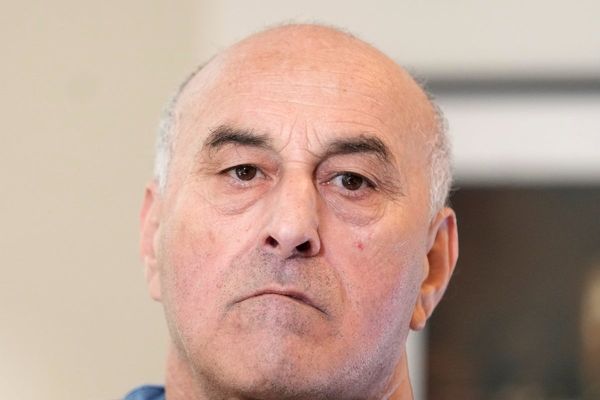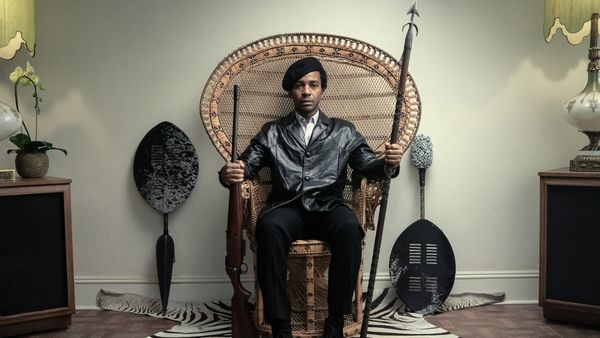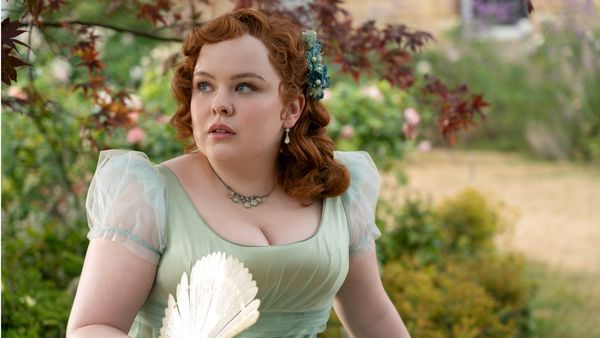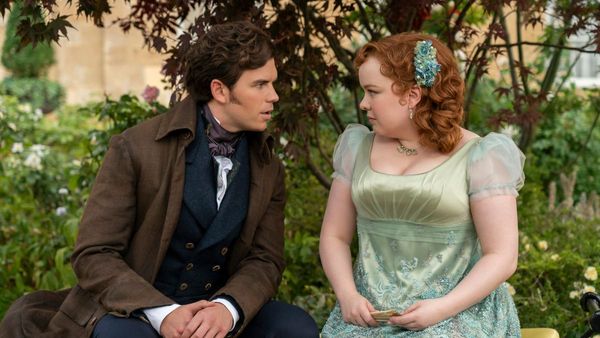
A few years back, in conversation with three Chicago-area Black Lives Matter activists, I brought up the then-forthcoming film Judas and the Black Messiah, starring Daniel Kaluuya as Fred Hampton, the deputy chairman of the Black Panther party in Illinois, who was assassinated by Chicago police, with help from the FBI, in 1969, aged 21. Were they excited to see this hometown hero brought to the big screen? Their collective eye-roll was so hard it nearly put a hole through the wall. “I mean, the CIA has a liaison office in Hollywood,” said one. “It’s impossible to go through that system and expect an authentic portrayal of an anticapitalist revolutionary.”
The Big Cigar is the latest attempt to pull off such a portrayal, regardless. It stars Moonlight’s André Holland as Black Panther Party co-founder Huey P Newton and tells the (sort of) true story of Newton’s 1974 flight to Cuba to escape a murder charge, with the help of Hollywood producer Bert Schneider (Alessandro Nivola) and an entirely fake movie codenamed The Big Cigar. It sounds similar to the plot of 2012 Oscar-winner Argo, because it is, and because both were originally optioned from magazine features written by the same hot-shot long-read reporter, Joshuah Bearman.
The appeal of adaptation is obvious: a border-hopping caper storyline set against a backdrop of 1970s “radical chic”. But whereas Argo slid into development within months of the article’s publication (with a little help from the CIA’s aforementioned Hollywood bureau), it’s taken 12 years, a global protest movement and the subsequent mainstreaming of previously “radical” antiracist ideas for Huey’s revolution to be televised.
This is at least partially because of the FBI’s campaign of sabotage against 20th-century Black leaders, which was so ruthlessly effective that it remains near-impossible to separate the truth from deliberate distortions, or sort these threads into any kind of moral coherence. Was Newton actually guilty of the serious crimes with which he was charged (but not convicted) in 74, including the murder of a 17-year-old girl? Moreover, can the violence of the oppressed ever be meaningfully measured against the violence of their oppressors?
Wherever you personally land on that, don’t expect this drama to roll up its trouser legs and wade into the controversy quagmire. The Big Cigar sidesteps by focusing narrowly on Newton’s relationship with real-life Hollywood player Schneider, the well-connected son of a former head of Columbia Pictures, who, fresh from the success of 1969’s counterculture classic Easy Rider, is keen to associate himself with a righteous cause. There are flashbacks to other significant moments in Newton’s past, but these offer little context to the man’s character. On the contrary – jumping back and forth deprives us of a sense of how pressures might have accumulated to send him off course.
The Big Cigar lacks a sense of the historical stakes (the undercover FBI agents are depicted as Keystone cops in bellbottoms and love beads) but it does engage interestingly with the issue of Hollywood’s role in all this. When Newton and Schneider first meet, it’s at a glitzy showbiz party thrown by the latter, where – in between snorting lines and laughing it up with Jack Nicholson – he eagerly makes the case for cinema’s world-changing power. Newton is sceptical. He’s been warned that “Hollywood is a fast-track to capitalist co-optation,” and generally has the same misgivings expressed by my Chicago BLM pals, the best part of half a century on.
Schneider doesn’t give up, though, and neither does The Big Cigar. There’s a scene much later in the series where the two men are sitting poolside with a typewriter, hammering out a screenplay for Newton’s biopic, when Richard Pryor (Inny Clemons) chips in: “You know what, Bert? You should be in it too! The establishment honkey!” Bert demurs modestly: “Don’t put me in it. It’s not my story.” But Pryor insists, “I done been around Hollywood long enough to know it ain’t gonna get made unless you put a white person in it.”
If this is what it seems like – the writers putting their own pre-emptive responses to criticism in the mouth of a famously trenchant Black comedian – then you have to admire the moxie.
Annoyingly, it’s the navel-gazing examination of self-identified “good white people” (altruism? narcissism? guilt?) that provides this mini-series’ most compelling thematic threads. Annoying, because by giving Schneider co-lead billing in what should have been the Huey P Newton story, The Big Cigar has supplied a dispiriting answer to its own still pertinent question: no, Hollywood can’t be trusted to authentically tell the stories of Black radicals; the compulsion to centre whiteness is just too strong.
• The Big Cigar is on Apple TV+ now.










